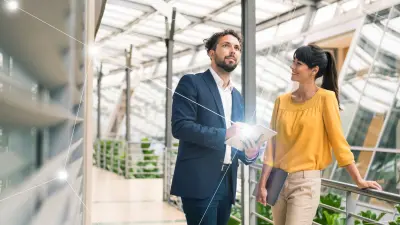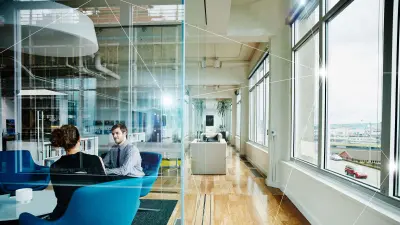Smart Buildings for smart minds
Paderborn University relies on building automation
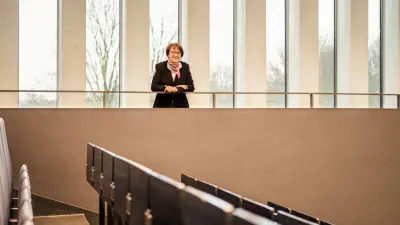
With its state-of-the-art infrastructure, the campus of Paderborn University can be seen as a benchmark for modernization and refurbishment. Dr. Martina Gerdes-Kühn, director of the Department of Facility Management, Building Services, Occupational Health & Safety and Environmental Protection, is responsible for the operation of the building complexes on the campus. In this interview, she talks about the importance of comfort, well-being and sustainability for students and academics.
Dr. Gerdes-Kühn, the focus on the topics of energy efficiency and climate change has become keener in recent decades. What importance do these topics have for Paderborn University?
The topic of conserving energy is a tradition for us. We have long been dedicated to optimizing operations to ensure that as little energy as possible is needed. Climate protection is also an important issue for the state of North Rhine-Westphalia: the state government aims to be carbon neutral by 2030. Half of all state properties belong to the universities, so we make an important contribution.
How do you make the campus more energy efficient?
We have invested a lot of practical knowhow and expertise into energy-optimized management of buildings. For example, we have equipped all lecture halls with building automation systems so that the ventilation can be controlled automatically and the room temperature can be adjusted to suit current occupancy. We will be installing photovoltaic systems on the new buildings. This all makes good building automation essential for utilizing the electricity generated. We have combined heat and power plants for heating and electricity production. In this case, building automation has also made a significant contribution to our ability to operate these systems in an energy-optimized way and exploit the full potential of heat output and electricity production for the university.
You place a lot of emphasis on sustainability and comfort – are these factors important for students today?
Definitely! It is an illusion to believe that students can be reached through attractive fields of study alone. Students and scientists have particular expectations of the quality of the space and the ambiance. To meet the expectations of well-being and convenience, we have equipped every last corner of the buildings with WiFi, the library is transparent and exhibits an open layout, and we are in the process of creating contemporary common areas in the buildings and the outdoor facilities.
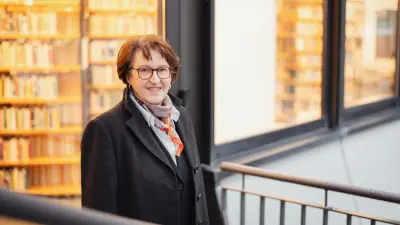
What excites you about the potential of advanced building automation networks?
One thing is that we will be able to influence the quality of the buildings. Networked, systematic building automation can improve conditions for users at a very low cost. And all this without the users noticing a thing. The sun protection systems, for example, operate automatically according to the time and the position of the sun, and no longer need to be operated mechanically – the building automation therefore works behind the scenes. Another thing I`m excited about is that it will be possible to integrate different systems such as intruder alarm systems and fire detection systems at a shared management level in the future in order to exploit synergies. Whether it really will be possible to monitor and control all systems from one central location remains to be seen. We do have to take a cautious approach to development. After all, a campus is a living organism; changes have to function and mustn´t bring the university to a standstill. We therefore place great importance on qualified employees who understand the systems, who manage energy consumption, and who can intervene if necessary.
What role does digitalization play?
It plays an important role in building automation. For example, digitalization enables fault messages to be automatically sent to the mobile phone or laptop of colleagues who are on standby, allowing them to view the building system on the campus using a VPN tunnel. This means that my team can, in some cases, deal with fault messages from home and it doesn’t always have to be on site. I think this is a really big step forward, as it allows us to optimize the deployment of staff.
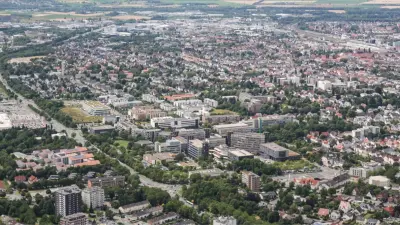
Paderborn University
Paderborn University was founded in 1972 as a campus university with connected buildings. The teaching and research profile at the five faculties covers a broad spectrum of subjects in the fields of the humanities, economics, natural sciences and engineering. The university offers around 70 degree programs and has 44 buildings. With more than 20,000 students, it is one of Germany’s medium-sized universities. It stands for cutting-edge research, innovation, interdisciplinary research projects and dynamic growth. Paderborn University uses building automation systems – on which it has been working with the company GFR, Gesellschaft für Regelungstechnik und Energieeinsparung mbH, a subsidiary of Bosch, for more than 20 years. The company has been called Bosch Building Automation GmbH since April 2022.
What is the structural condition of the buildings on the campus?
Paderborn University is not an old, traditional university, although we are celebrating its 50th anniversary this year. It was founded in 1972 as a campus university with interconnected buildings. These legacy buildings were built using what can be described as a modular principle, as were other universities founded at that time. These buildings are now getting old, they urgently need to be modernized – with regard to energy, but also in terms of user quality. Modernization is an ongoing process. One of our key goals is to modernize and carefully modify the buildings in a way that allows scientists to pursue their work and research reasonably, and of fers students optimal teaching and training conditions. We are also continuously adding new buildings. We will have modernized a large section of the campus by 2027.
What requirements do you have when new buildings are constructed?
Our standards always depend on the type of building – the different buildings each bring different challenges. Since Paderborn University is particularly successful in the field of research, our requirements of research buildings are particularly high. For example, we will build an optoelectronics building with optical laboratories and cleanroom technology – and expect the highest standards in terms of building automation, comfort and degree of technology penetration.
What challenges are you encountering?
The construction of the‘green’data center presents us with a special challenge: we intend to set a nationwide standard on how to operate one of the most state-of-the-art high performance data centers in Germany in an energy-efficient manner. The large amount of electricity required by the Noctua supercomputer is challenging: it requires half as much electricity as the entire campus. We want to improve sustainability by exploiting the valuable waste heat to heat the other buildings on the campus. The building automation system is an important source of momentum. Building automation will ensure that the buildings can talk to each other – one building produces heat and the other reports its demand for it. The project is in the middle of being developed, and I trust my own technicians and the experts at Bosch Building Automation GmbH, all of whom are very committed to implementing this project in a way that we will all benefit from it.
What goals have you set yourself for the future?
We want to build and equip the new buildings with technology that will ensure they remain viable for a long time to come, and can be used by future generations of scientists over the next 40 to 50 years. For me, it is also important to have attractive building lighting. In my opinion, you shouldn’t try to save too much on lighting and leave the buildings looking gloomy and dreary. This is why it’s my goal to create atmospheric, inviting lighting that projects an attractive image of the university to the outside world: a university that shines.
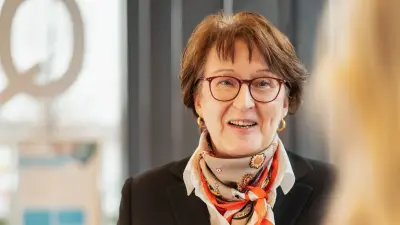
Dr. Martina Gerdes-Kühn holds a doctorate in technical chemistry and wastewater disposal and subsequently became involved in building operations through the cluster of topics accounted for by occupational safety, hazardous materials management, waste disposal and fire protection. She has been working at Paderborn University as director of the Department of Facility Management, Building Services, Occupational Health & Safety and Environmental Protection since 2003. Her technical building management team comprises a staff of 40 employees, including engineers and technicians.
